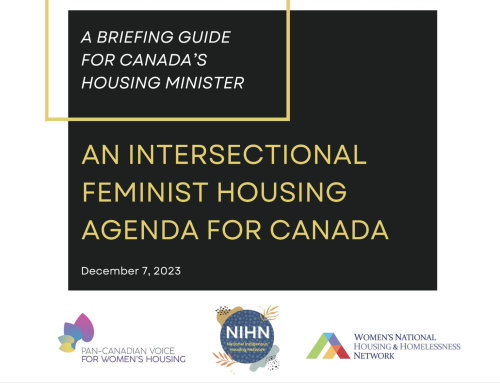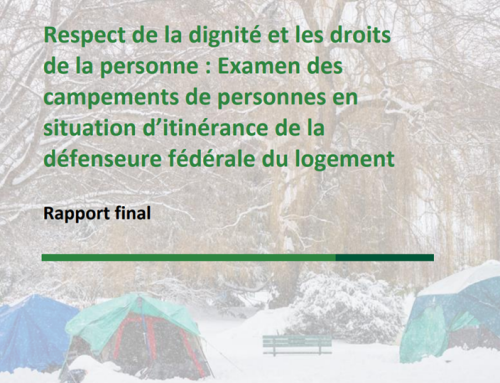Towards a unified process for measuring Canada’s homeless population
By James McGregor and Eric Latimer
(L’article est aussi disponible en français)
The Conservative government announced in 2015 its intention to implement a nationally coordinated point in time homeless count. The newly Liberal government has kept this pledge, in keeping with its promise to base policy decisions on reliable and accurate data. The federal government will provide guidance and funding to local communities wishing to conduct a homeless count, with the first count scheduled to take place early this year. Key to this national effort is common timing of the count, as well as a similar methodology, which will allow information regarding homelessness to be both compiled and compared across the country.
A Point-in-Time count is a snapshot of homelessness in a given city. Methodologies vary, but the objective is always the same: to understand the scale and profile of homelessness at a particular point in time. Homeless counts are not perfect, and do not include the many people who experience hidden homelessness, but they are a valuable and reliable source of information about a problem that is poorly understood by the public and policy makers.
A number of big cities in Canada have announced recently that they will not participate in this first national effort to enumerate the homeless population. Their reluctance to participate should not be seen as a critique of homeless counts. Rather, it underscores the great importance and value of regular homeless counts.
Most of the big cities that have announced that they will not participate in the federally coordinated count – Edmonton, Calgary, Vancouver, Toronto, Montreal –have been conducting counts of their own at the local level. For years, activists and policy makers have been monitoring trends and changes in homelessness in several of these cities. We know that aboriginal homelessness is rising in Vancouver, and more seniors are experiencing homelessness in Toronto thanks to repeated, comparable homeless counts. This is valuable information. Changing the timing of the count, and potentially some aspects of the methodology, will mean these cities might lose some of their ability to track these trends over time.
Vancouver has conducted yearly counts in March since 2008 and Toronto has conducted homeless counts in April every three or four years. Cities in Alberta have alternated between winter and summer counts, with Calgary having started in 1992. Montréal just successfully completed its first homeless count in March 2015, which involved over 600 volunteers.
The federal government should not give up. A cross-country homeless count would allow cities to align the timing, definition, and methodology of their counts, giving an accurate snapshot of homelessness at the same time in the entire country and allowing cities to compare the results and learn from one another. Given the many months required to organize a homeless count, the federal government should understand the reluctance of several cities to organize a new count on very short notice. Planning on a nation-wide count in, say, 2018, would give cities time to align their counts with a new national schedule. It would also provide an opportunity to include city representatives in a discussion on methodology, increasing the chances of widespread buy-in. This would help help the counts better serve their role in supporting effective decision-making at the federal, provincial, and local levels, and ultimately help reduce and even end homelessness.
James McGregor, asc, is the Director General of the Movement to End Homelessness in Montreal (le Mouvement pour mettre fin à l’itinérance à Montréal MMFIM). Eric Latimer, PhD is a researcher at the Douglas Mental Health Institute and Professor in the Department of Psychiatry at McGill University. They co-directed Montréal’s recent homeless count, I Count Montreal/Je Compte Montréal 2015



